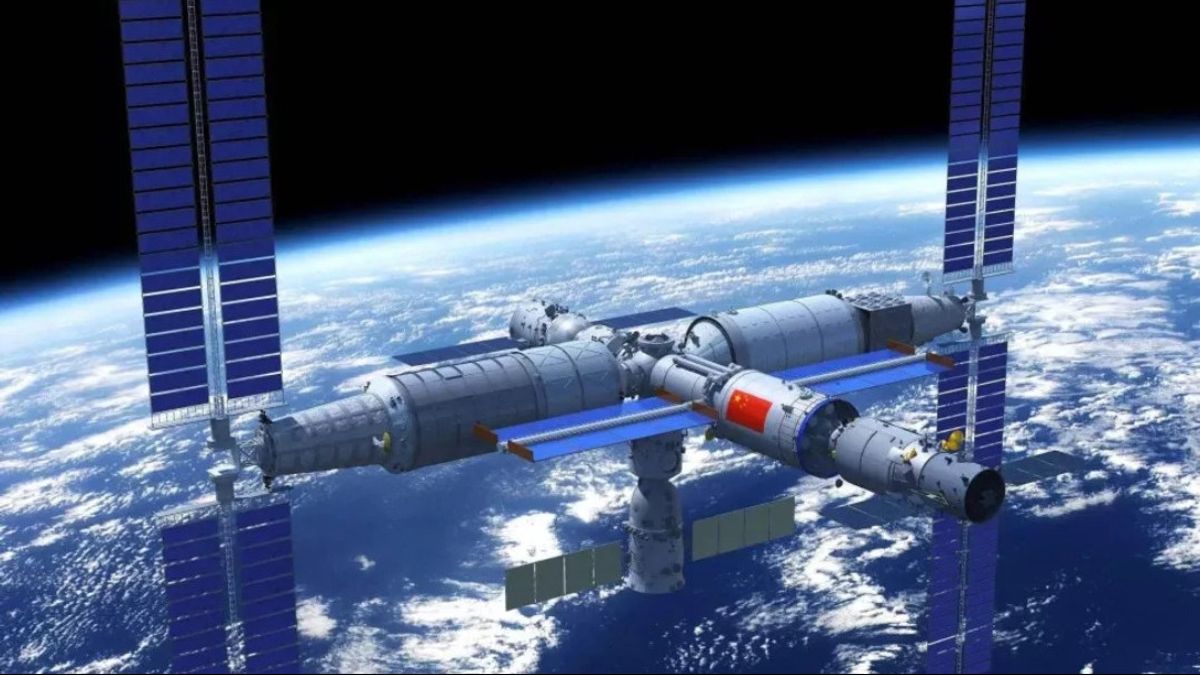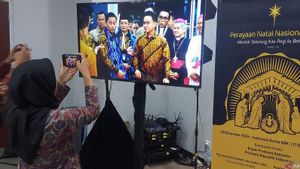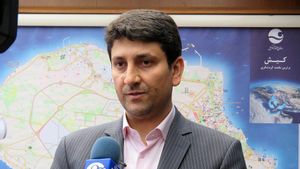JAKARTA - China will bring back three astronauts to complete the construction of their space station, Tiangong. The plan, the flight is scheduled for today local time.
The three astronauts included a veteran of the four-day Shenzhou-6 space mission in 2005 and Fei Junlong, he was also mission leader and manned by Deng Qingming and Zhang Lu, two new astronauts.
The mission, dubbed Shenzhou-15, will be carried out for six months and will be the last in the Tiangong construction phase.
They will take off from the Jiuquan Satellite Launch Center on the banks of the Gobi Desert on Tuesday night, November 29 local time. The three of them will ride the Long March-2F rocket.
Previously, the third and final modules had docked earlier this month in Tiangong, one of the last steps in China's efforts for more than a decade to maintain a constant crew presence in orbit.
The astronauts will gather with the previous crew, which arrived in early June. After the Shenzhou-15 spacecraft performs automatic docking with the front port of the Tianhe core module, the station will expand to its maximum size, with three modules and three spacecraft with a total mass of nearly 100 tons.
Tiangong itself has room to accommodate six astronauts at once. The previous mission to the space station took about 13 hours from liftoff to dock.
With the completion of Tiangong, signaling China is one step ahead of the United States (US). It is planned that next year, China will launch the Xuntian space telescope, which orbits successively with the station and can dock with it for maintenance.
Tiangong weighs about 66 tonnes, a small part of the International Space Station (ISS), which launched its first module in 1998 and weighs about 465 tonnes.
With a period of 10 to 15 years, Tiangong will one day be the only space station still operating if the ISS complies with its 30-year operating plan.
China's manned space program is officially three decades old this year, but actually started in 2003, when China became the third country after the US and Russia to put humans into space using its own resources.
Launching ABC News, Tuesday, November 29, this program was carried out entirely without outside support. The US excludes China from the International Space Station (ISS) because of its program's military ties.
The English, Chinese, Japanese, Arabic, and French versions are automatically generated by the AI. So there may still be inaccuracies in translating, please always see Indonesian as our main language. (system supported by DigitalSiber.id)













